On April 1, 2023, for the first time in my life, I arrived in Moscow.
Ten days later, I boarded a train for Crimea. While taking the 28-hour train ride to Simferopol, which is about 2,000 km from Moscow, I took the opportunity to record these reflections on my first visit to Moscow.
A Disclaimer
Before I proceed to share my reflections, some important words of qualification are in order.
First, although I caught glimpses of Moscow’s outer suburbs, I largely confined myself to central Moscow during my ten days in the city. What I observed in central Moscow might not be remotely representative of the conditions prevailing in the city’s outer suburbs, or in cities and regions that I have yet to see.
Second, I’ve learned from experience that visiting a city and living in it are not the same thing. At the age of 21, I visited Paris, France for the first time and spent ten days there. Eight years later, I took up residence in Paris and lived there for two years. I visited New York City for the first time at the age of 26 and spent one week there. Several years later, I took up residence in Manhattan and lived there for five years. After living in Paris and New York, my understanding of those cities was far superior to the knowledge of them that I had acquired as a mere visitor. At best, a short stint in a city as large and as multifaceted as Moscow enables an outsider to scrape the surface of the place, nothing more.
My very limited experiences of Moscow and of Russia can constitute nothing more than a few data points in a vast and complex history that spans centuries. If you are truly committed to truth, justice and peace, as I am, then you should not confine yourself to my impressions of Russia, nor should you dismiss them out of hand. Rather, you should consult a broad array of sources reflecting diverse viewpoints and experiences of the country, and you should weigh those sources with an open, independent and critical mind.
Having said all of that, Moscow is not what I expected. Not even close.
Central Moscow
I grew up during the Cold War. My expectations of Moscow were formed from an early age by frequent television and newspaper images of a grey, drab and dreary metropolis whose vast population struggled with persistent privation and suffocating surveillance.
Before arriving in Moscow, I expected its architecture to be predominantly utilitarian, boring and run down. I expected the air to be heavily polluted and the streets to be littered. I expected to see levels of homelessness comparable to, if not worse than, homelessness in major Western cities. I also expected to see a heavy and visible presence of militarized police.
I saw none of these things.
It is always a challenge to estimate the level of homelessness in a society, especially when one relies principally upon one’s personal observations in the street. Many homeless persons might not be apparent to a casual observer. Also, local authorities might have taken steps to conceal the level of homelessness by, for example, confining the homeless to districts that are rarely visited by outsiders. It is therefore possible that Moscow suffers from a far higher rate of homelessness than was apparent to me.
All I can say is that, based on the criteria I normally apply in Western societies when I try to gauge the level of homelessness in a city, the number of homeless persons whom I encountered while walking the streets of central Moscow was far below what I am accustomed to seeing in Canadian and other Western cities. In ten days, during which time I walked well over 120 kilometres in central Moscow, I saw, at most, five persons who appeared to me to be homeless. Typically, when I walk for just thirty minutes in the central areas of Toronto and Montreal, I see far more homeless persons than I saw in Moscow over a ten-day period.
Moreover, and as I hope the images below will convey, the architecture of central Moscow is majestic, extraordinarily diverse and, for the most part, very well preserved.
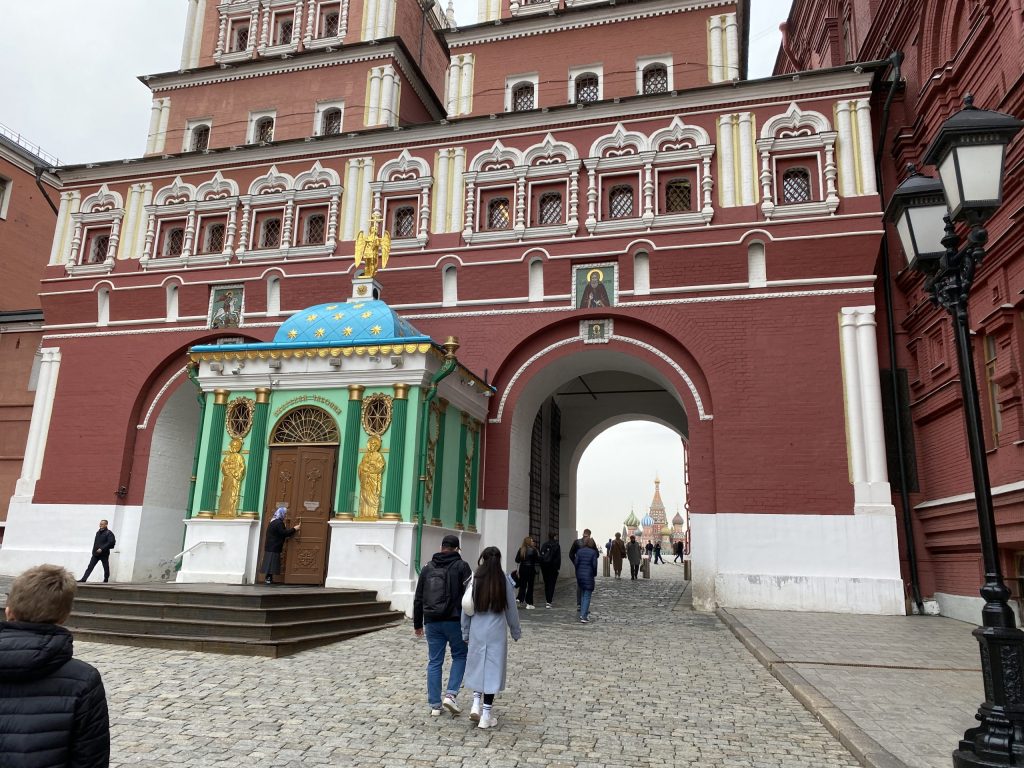
Entrance to Red Square
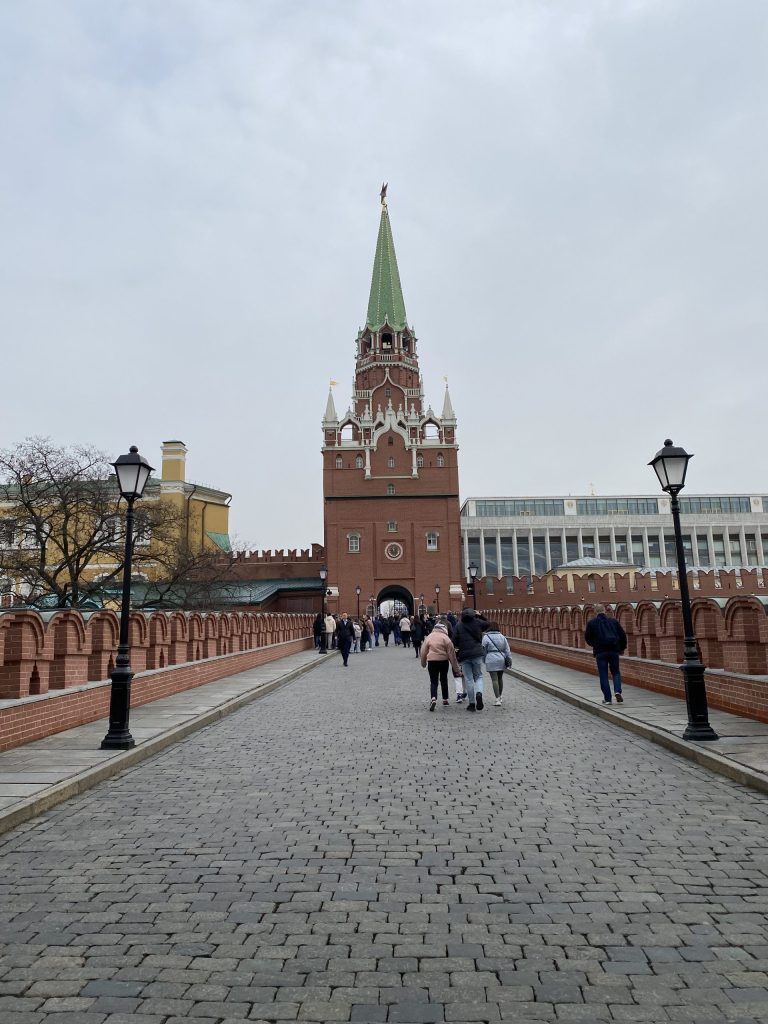
Entrance to The Kremlin
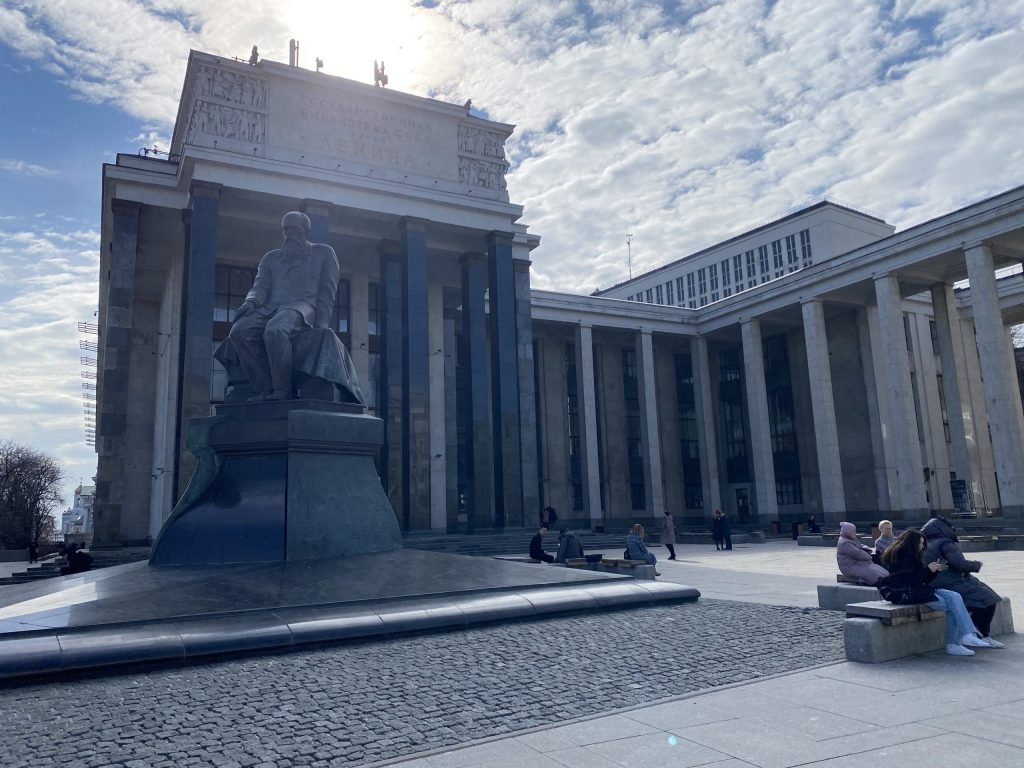
National Library / Statue of Dostoevsky
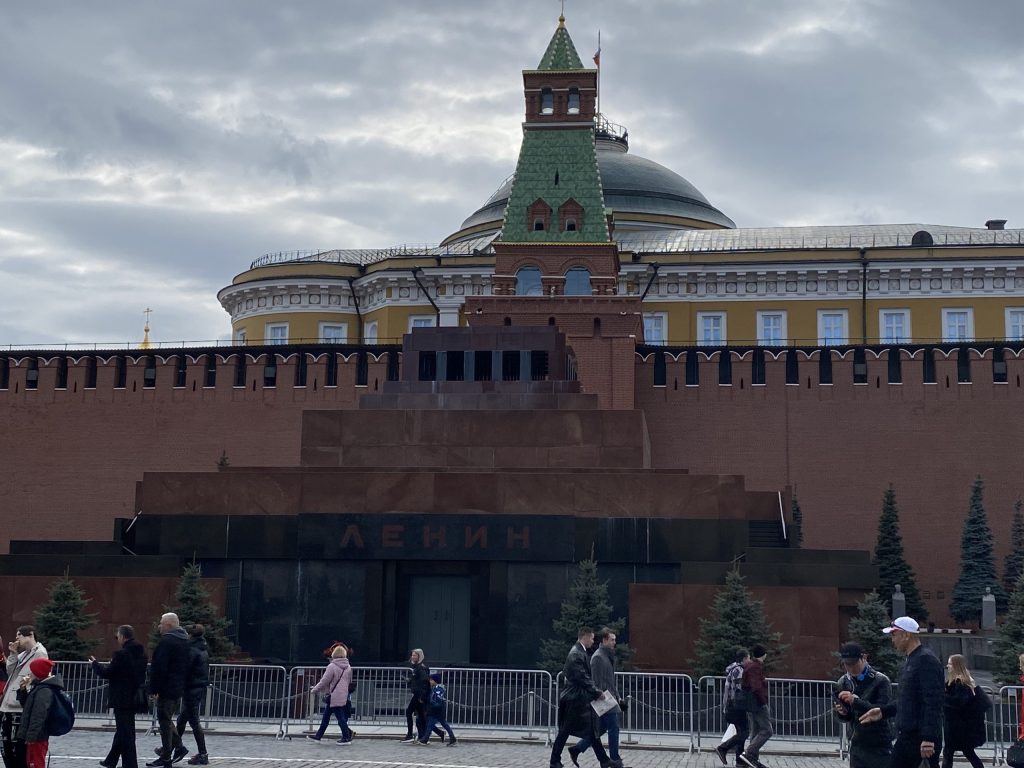
Lenin’s Mausoleum – Red Square
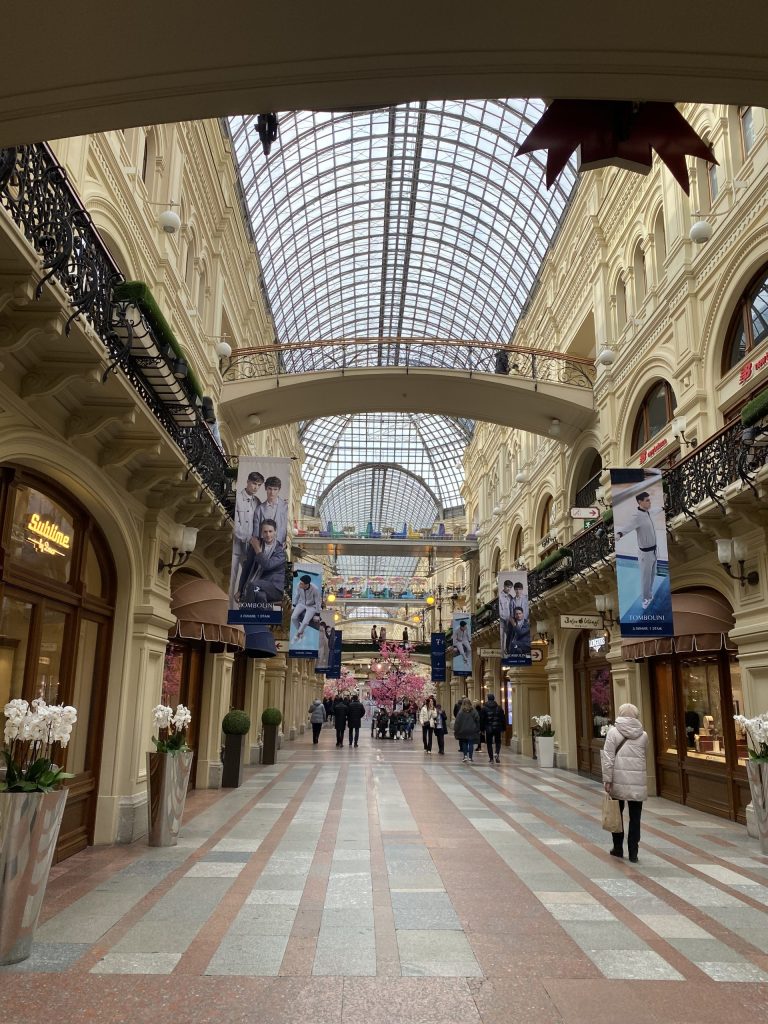
GUM Shopping Mall at Red Square
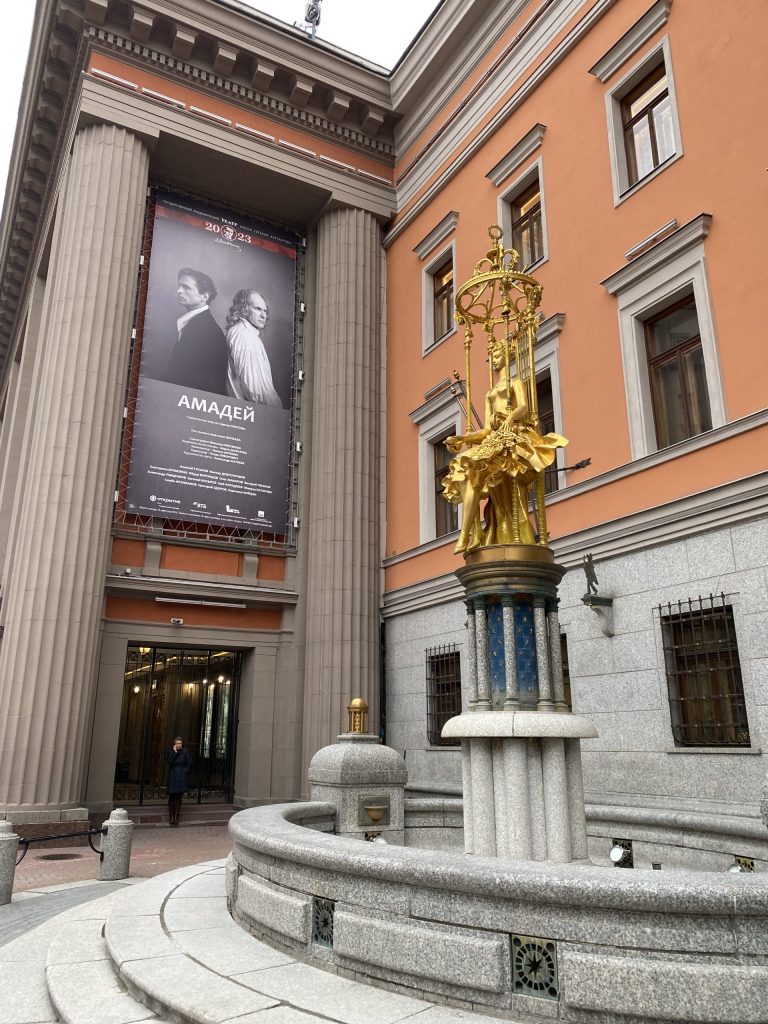
Theatre in Central Moscow
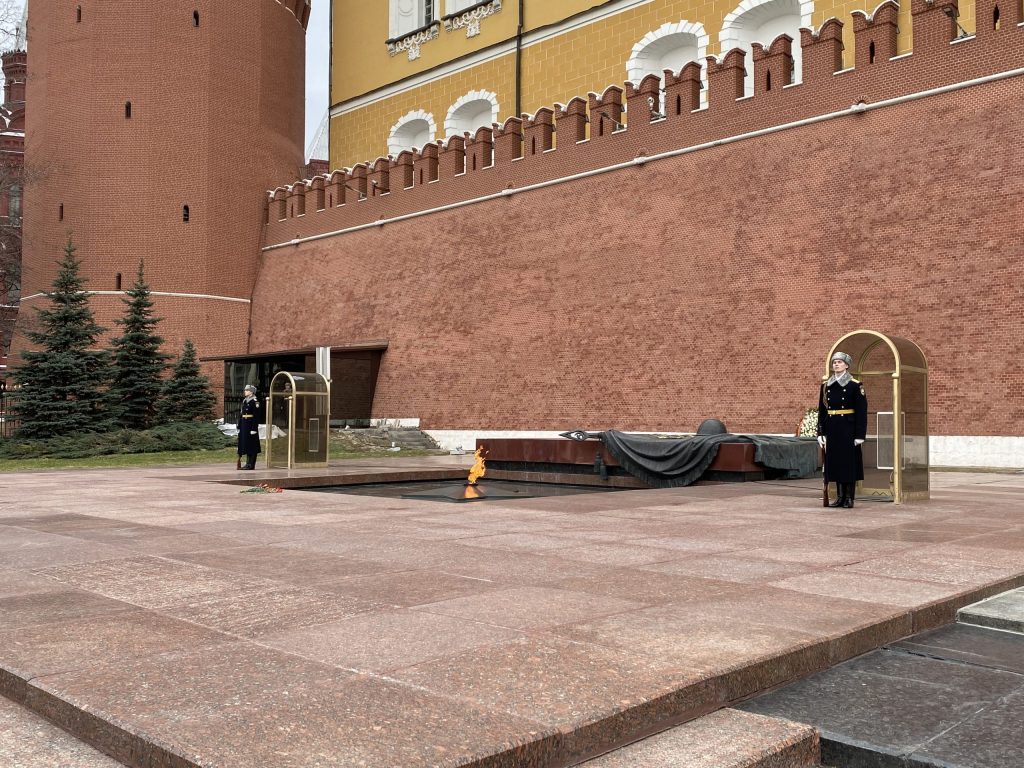
Tomb of the Unknown Soldier at The Kremlin
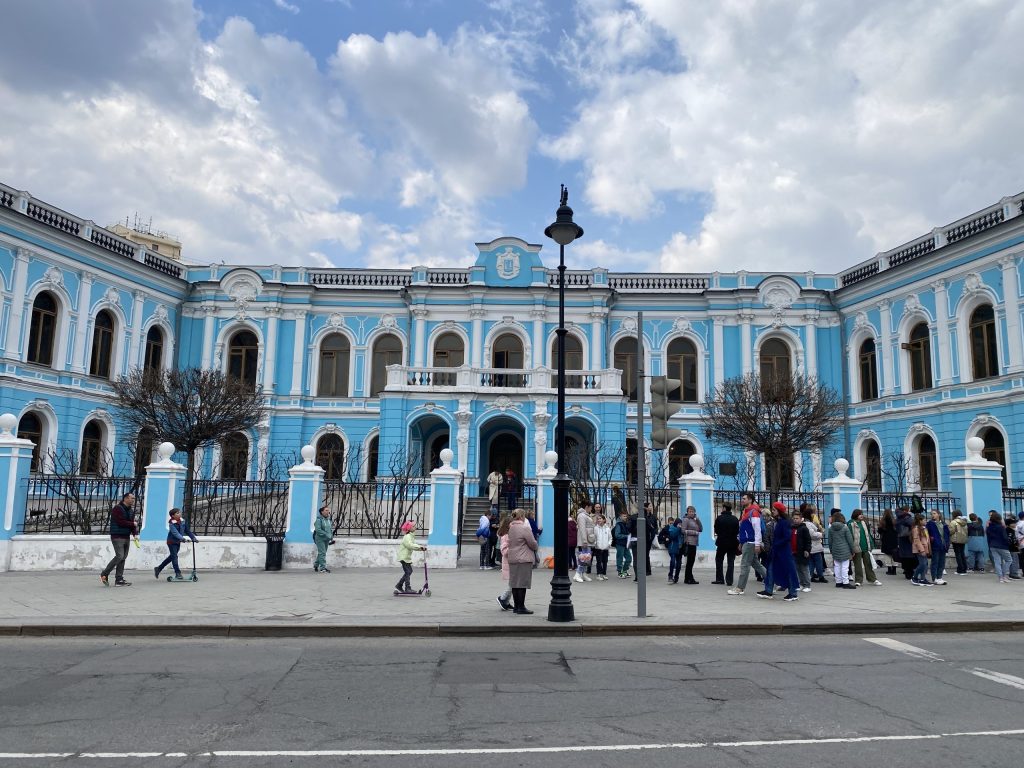
School in Central Moscow
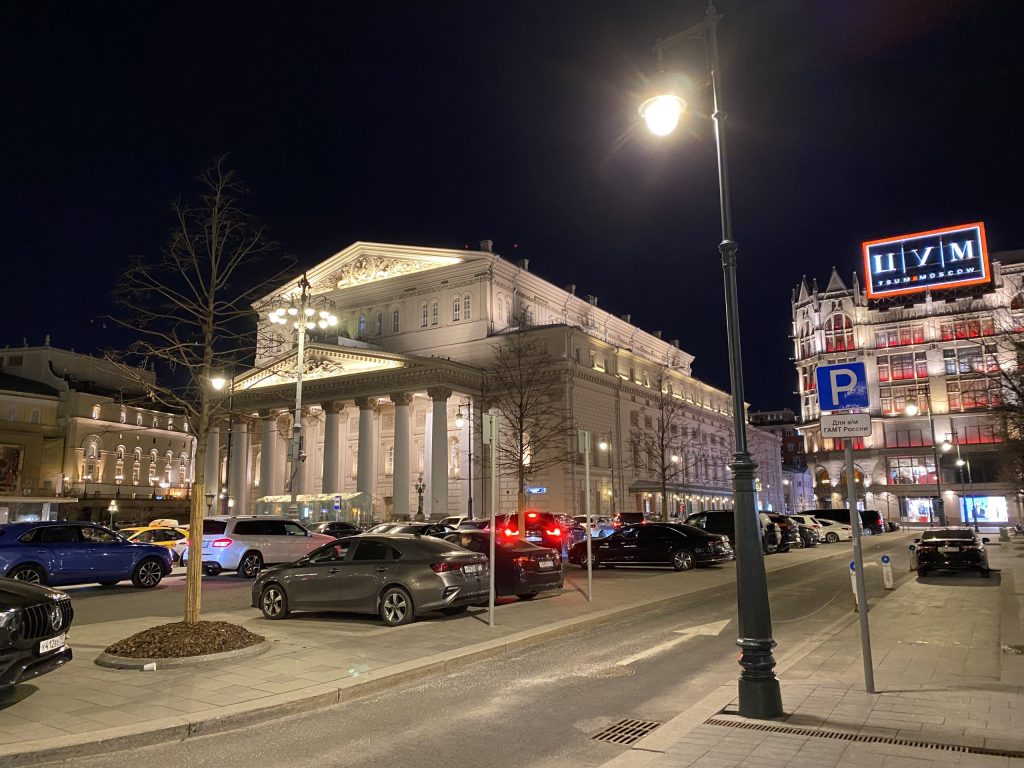
Bolshoi Theatre
Orthodox Cathedrals in The Kremlin:
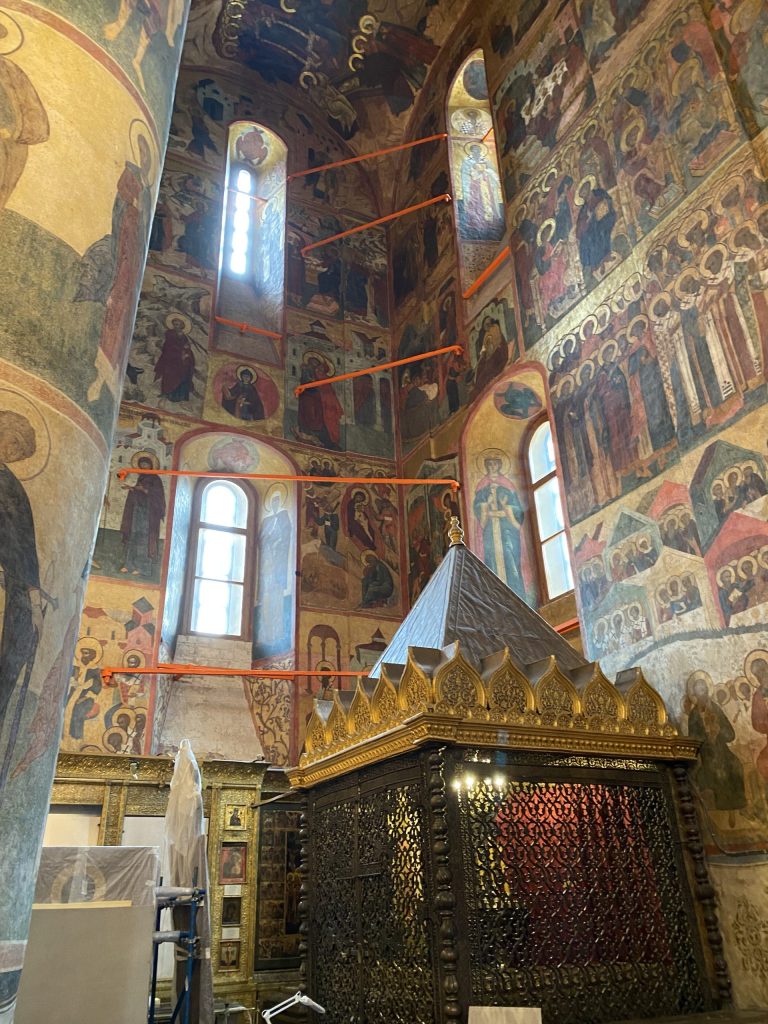
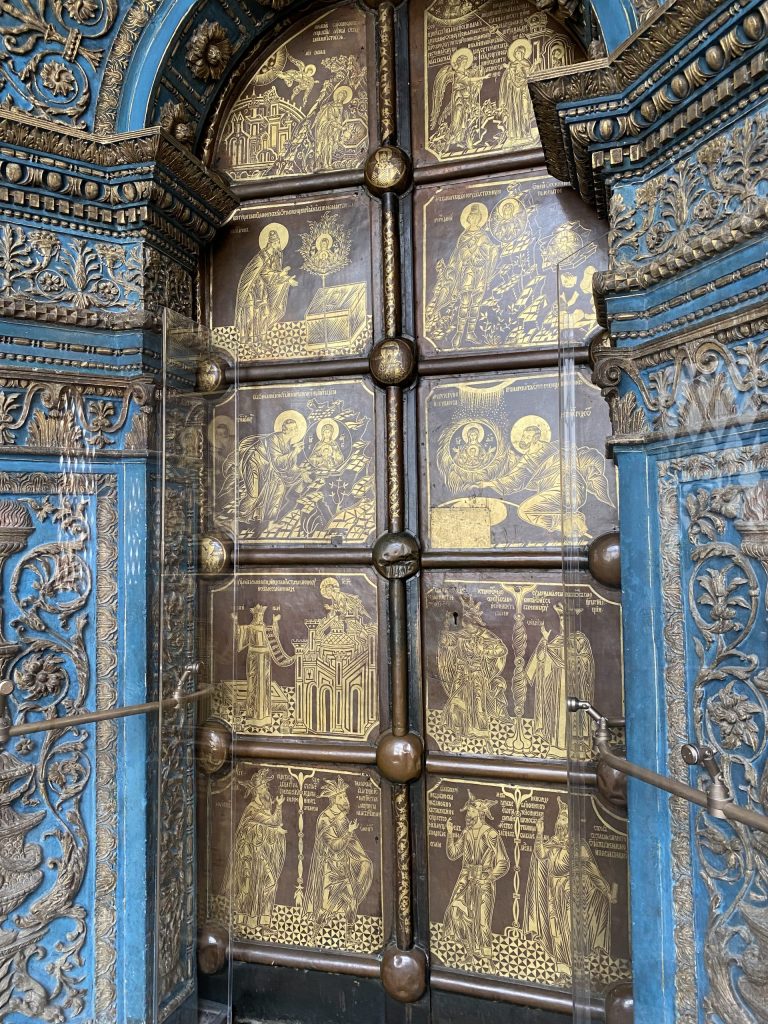
In Toronto and Montreal, it’s normal to see litter in the streets and garbage cans overflowing with coffee cups and other trash during business hours. I saw very little garbage in the streets of central Moscow.
With a population of some fifteen million people (twice the population of Montreal, Toronto and Vancouver put together), Moscow is vast. Having spent far too much time in the traffic jams of Toronto and Montreal, I was impressed by how little vehicular congestion there seemed to be in Russia’s sprawling capital. I suspect that the fluidity of Moscow’s traffic has something to do with the prevalence of pedestrian underpasses. These underpasses not only expedite vehicular traffic, they almost certainly reduce the number of pedestrian deaths and injuries from collisions with motor vehicles.
Also, Moscow’s metro system is as extensive, clean and efficient as any metro system I have seen in the Western world. This map should give you a sense of how elaborate its metro system is.
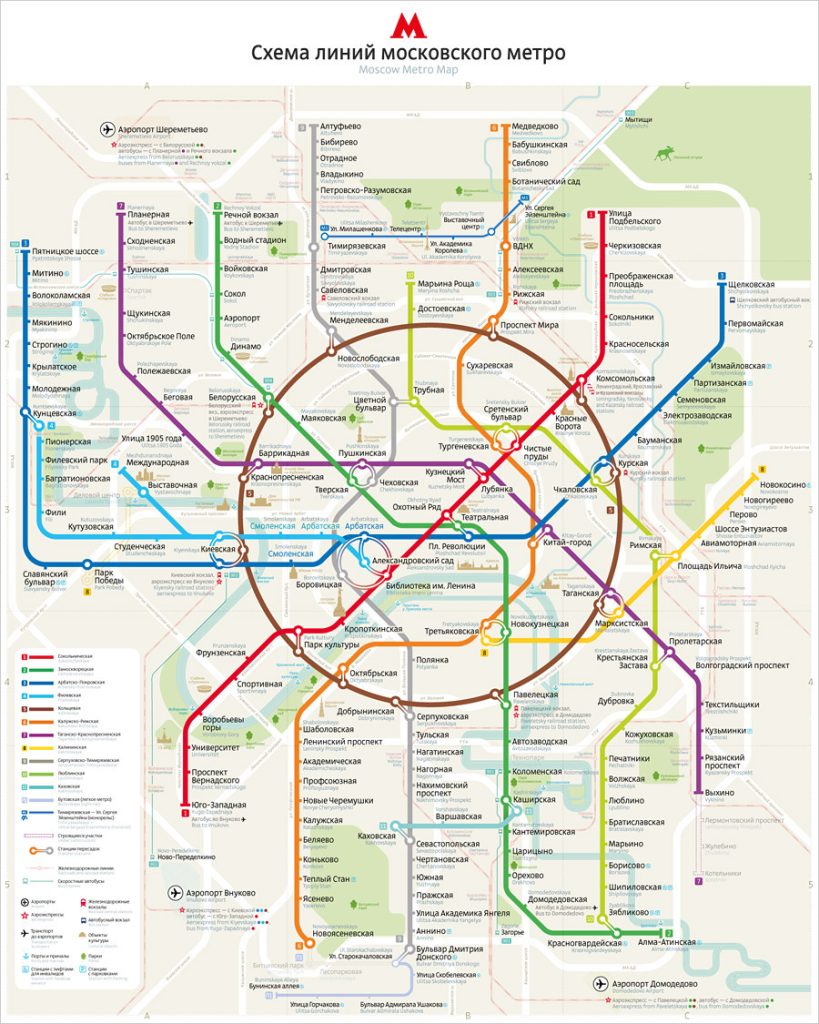
I must confess that I travelled to Russia with some trepidation. As a Canadian citizen who speaks no Russian, I was concerned that some Russians would be hostile to me. After all, and despite official pretences to the contrary, Canada is at war with Russia. Unsurprisingly, Russia has declared Canada to be an “unfriendly country”.
On its website, Global Affairs Canada advises Canadians to “avoid all travel” to Russia:
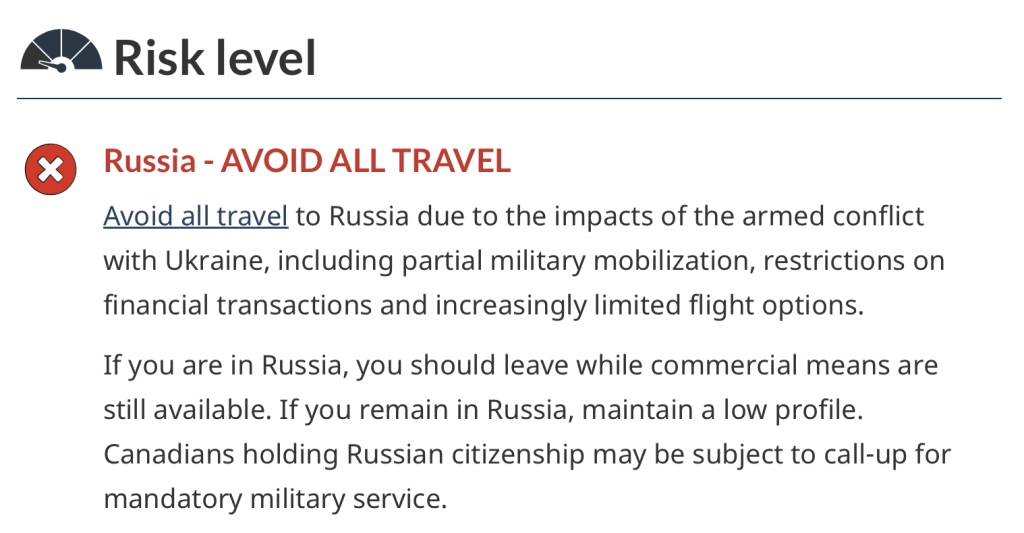
Despite these circumstances, no Russian with whom I interacted in Moscow evinced the slightest hostility toward me. At no time in Moscow did I feel unsafe. The uniformed police were no more present in the streets of central Moscow than in any major Western city I have visited. In fact, I generally see far more uniformed police in the streets of Athens than I saw in central Moscow.
Finally, in Moscow, there were no obvious signs of economic crisis. Restaurants, bars and shops seemed reasonably busy, especially on weekends. As this video shows, grocery store shelves seemed generally to be full:
Public Support for Vladimir Putin
In March, shortly prior to travelling to Russia, I spent ten days in Lebanon. During that time, and with the guidance of a Lebanese tour company, I spent one day in Damascus, Syria — a fascinating experience about which I shall have more to say in a subsequent article.
One of the many things that stood out for me during my day in Syria was that the image of Syria’s President, Bashar al-Assad, was everywhere: on billboards, on government buildings and commercial structures, in shop windows and even on the Syrian pound (the national currency).
In Moscow, by contrast, I did not see the image of Vladimir Putin anywhere, except (occasionally) on television news.
Opinion surveys have shown consistently high levels of support for Russia’s President. Surveys published by the Russian polling agency Levada, widely considered to be reputable, indicate that, in his twenty or so years in power, Putin’s approval rating has never dipped below 60% and that, within the past year, it has stood at approximately 80%.
Putin’s popularity is rarely acknowledged in the West. On the odd occasion that we hear about it, public support for Putin is dismissed as a product of the suppression of dissent and Russian government propaganda.
Although the suppression of dissent is a serious issue in Russia (more on that below), we Westerners should not discount the sophistication of the Russian people. It just might be that many Russians genuinely feel they have legitimate reasons to support their President.
What might those reasons be?
In 2000, when Vladimir Putin assumed the office of Russia’s Presidency, Russia was a basket-case. Under President Boris Yeltsin, a drunken buffoon whose re-election in 1996 was attributed by U.S. media to the machinations of Bill Clinton’s advisers, the quality of life of ordinary Russians plummeted.
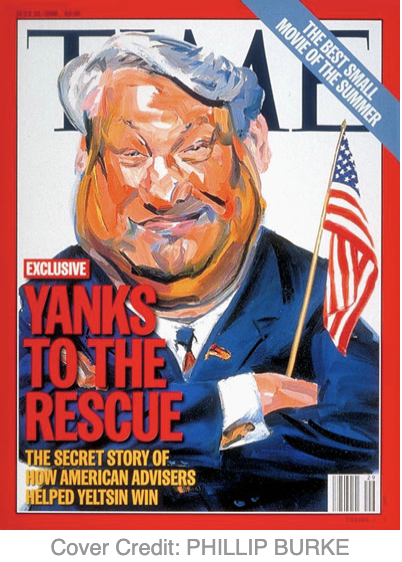
Time Magazine Cover, June 15, 1996
Not only did the Clinton administration aggressively interfere in Russia’s elections, it also violated a commitment made by Western leaders to Mikhail Gorbachev that NATO would not expand ‘one inch eastward’, as long as the Soviet Union did not obstruct the reunification of Germany. That breach of trust was so momentous that Clinton’s Defence Secretary, William Perry, nearly resigned. Among his many failings, Yeltsin was either unable or unwilling to hold NATO to its promise of no eastward expansion.
During the eight years Yeltsin held office (1991- 1999), inequality, poverty, substance abuse, suicide rates and criminality soared in Russia. Meanwhile, the average life expectancy of Russians plummeted.
In addition, in 1998, Russia experienced a devastating financial crisis. Under Yeltsin and his sadistic program of ‘shock therapy’, which was much in favour with Western governments, Russia did not experience positive economic growth until 1997. In August 1998, the Russian stock, bond and currency markets collapsed as a result of fears for a ruble devaluation and a default on Russia’s domestic debt. Within months, Russia did in fact default. In 1998, the Russian economy contracted by 5.3%. GDP per capita reached its lowest level since the formation of the Russian Federation in 1991.
In August 1999, in the aftermath of a decade of kleptocracy, socioeconomic disaster and geopolitical humiliation — all of which was avidly facilitated by the self-proclaimed ‘victors of the Cold War’ — Yeltsin appointed Putin as the Prime Minister of Russia. Putin became acting President of Russia on December 31, 1999, when the widely-despised Yeltsin mercifully resigned. Putin was elected President of Russia on March 26, 2000, and was re-elected to a second term on March 14, 2004. On May 8, 2008, he was appointed Prime Minister by presidential executive order. Putin was elected to the Presidency in 2012 and has been President of the Russian Federation ever since.
According to the World Bank, during the Putin era (2000 to 2020), Russia’s poverty rate declined from 29% to 12% – a 59% reduction. World Bank statistics also show that, from 2000 to 2019, average life expectancy of Russians increased from 65 years to 73 years. (Life expectancy dipped during the pandemic – as happened in many other countries.) Moreover, the crime rate fell precipitously after Vladimir Putin came to power, from 28.1 crimes per 100,000 persons in 2000 to 7.3 in 2020.
The Putin government managed these achievements while maintaining fiscal discipline (more on that below), and despite the West’s imposition of severe sanctions on Russia in 2014.
Russia’s fiscal position has improved enormously during the Putin era. Its debt-to-GDP ratio stood at 18.2% in December 2021, one of the lowest in the world and the lowest of any major economy. By contrast, Canada and the United States had a debt-to-GDP ratio of 113% and 127%, respectively, as of December 2021.
In July 2021, the World Bank’s lead economist for Russia, Apurva Sanghi, authored an article entitled “Half a Decade On – Reflecting on Russia’s Unsung Successes“. In it, Sanghi wrote that “As a professional analyst of the Russian economy over the last 5 years, I can summarize my experience in one sentence: things in Russia are never as bad as they seem, but they are never as good as they can be, either.”
Sanghi continued:
Just in the last 6 years, Russia has managed to attain remarkable macro-stability. Inflation, which was in double digits, is in now in manageable territory. The country is less reliant on oil and gas today than 5 years back. These are no small achievements. On the other hand, as I – and many others have written – sagging potential growth holds progress back. But these issues are well-known. In this final column, I would like to recognize three lesser-known Russian developmental successes that often fly under the radar screen.
First is Russia’s increase in life expectancy – from 65.3 years in 2000 to 72.7 years in 2018. This has been mostly due to a drop in the number of deaths caused by non-communicable diseases (i.e. diseases that are not infectious or contagious such as heart attacks and stroke) and external causes (such as road accidents and homicides). Mortality rates for both adults and particularly children have also been decreasing since the 2000s. Even more recently, infant mortality decreased by 36 percent from 2011 to 2017 and maternal mortality decreased by 49 percent in the same period. While the pandemic engulfs us all, it is worth taking a longer-term perspective to recognize legitimate improvements in Russia’s life expectancy.
Second is Russia’s progress in financial literacy. Russia is no stranger to financial crises. While governments anywhere and everywhere have the primary responsibility in preventing and managing them, an important factor that is only being recognized is the need for individuals to become more informed about making financial decisions.
As an early adopter, Russia has recognized the benefits of financial literacy, and made remarkable strides in increasing literacy across both adult populations and school children. This is thanks to both top-down efforts by the Ministry of Finance and Central Bank of Russia, and bottom-up ones, which have included tapping into schools, libraries, and other community platforms to reach a large and diverse segment of the population. Indeed, Russia was ranked the first among 132 countries in the Child & Youth Finance International Global Inclusion Awards in 2016. It also ranks in the top 10 of G-20 countries for financial literacy.
Third is Russia’s progress in improving its tax administration. The history of taxes in Russia hark back to medieval times, with Prince Oleg imposing the first known “tribute” on dependent tribes. Catherine the Great is known to have said “Taxes for a government are same as sails for a boat. They serve to bring her faster into a harbor without flipping over by their burden”.
After spending one week in Moscow, I had the pleasure of meeting Fred Weir. Fred is Canadian. He has been the Christian Science Monitor’s Moscow correspondent since 1998. He moved to the Soviet Union in 1986 and has lived in Russia ever since. He’s one of the few remaining Western correspondents in Russia. He previously wrote for Canadian Press, The Hindustan Times, The Independent and the South China Morning Post. In a café on Arbat Street, Fred and I spent a couple of hours discussing life in Russia.
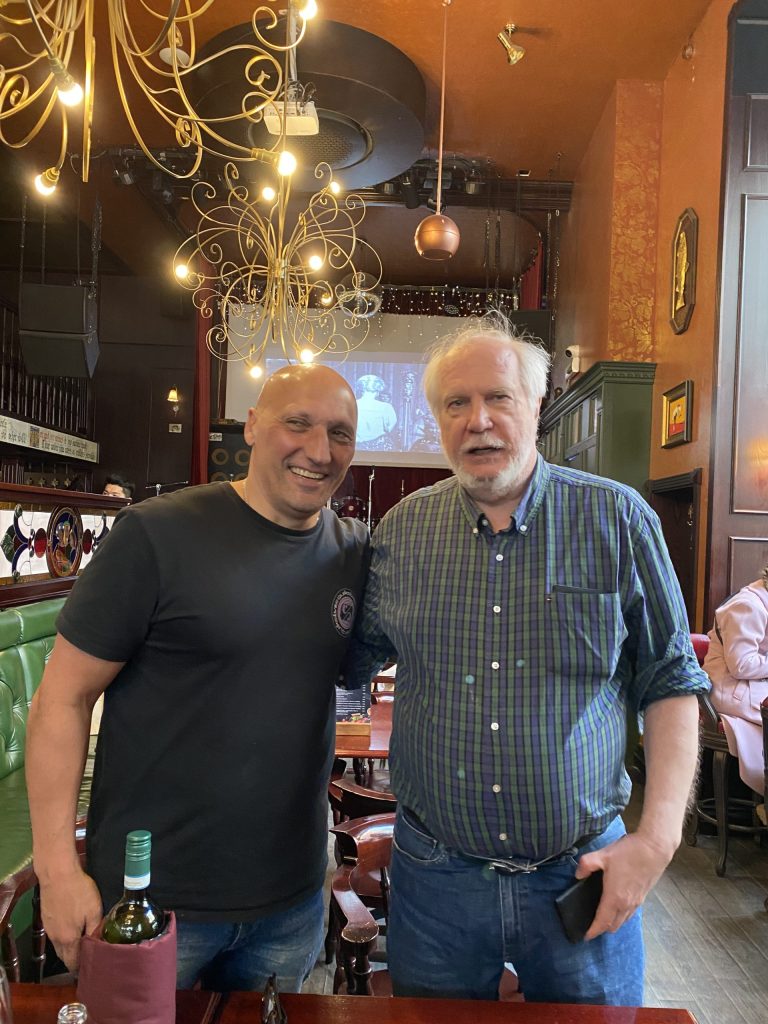
Fred Weir and yours truly, in a Moscow pub
Fred married a Russian citizen many years ago. They had a son together. Their son was raised in the Russian and English languages and is fluent in both. A few years ago, their son moved to Canada to pursue post-secondary studies in Ottawa. Fred told me that his son wants to come home to Russia. Fred recounted his son’s recent experience with the medical system in Canada. Fred’s son needed to see a doctor and went to the student health clinic on campus. The clinic did not have the capacity to provide reasonably prompt care to his son, so an employee of the clinic told his son to go to emergency services at a local hospital. Fred said that this sort of thing would not happen in Russia. As far as he can tell, the quality of care that is available to him and his family in Russia is superior to the quality of care that is available to ordinary Canadians nowadays.
Fred is no cheerleader for the government of Vladimir Putin. On December 5, 2022, Christian Science Monitor published an article by Fred entitled “In Russia, critiquing the Ukraine war could land you in prison.” According to Fred’s article, Russian authorities have instituted nearly 4,000 prosecutions under a pair of new laws that make it punishable to spread any “fake news” about Russia’s military operation in Ukraine, or to make any statement that authorities deem to “defame” Russia’s army or officials. According to Fred, these laws have created “an atmosphere of pervasive fear that has not been widely felt in Russia since Soviet times.”
In our conversation, Fred summed up his view of today’s Russia by saying that, for ordinary Russians, life is generally better than it has ever been. Fred quickly added that that is not saying much, because life in Tsarist Russia, the Soviet Union and the Yeltsin era was extremely challenging for ordinary Russians.
Some closing thoughts for my critics
Since announcing my intention to travel to Russia, I’ve been on the receiving end of all manner of criticism.
Some have insisted that I should not travel to a country that is waging a war of aggression against another state. Notably, the people who make that argument seem to have no problem with travelling to the United States, which has launched more wars of aggression in the post-World War II period than any other state by far. Moreover, these same people ignore the fact that I did not come to Russia for rest and relaxation. Rather, I came to Russia to improve my understanding of this country and its people, and to share with my fellow Westerners the benefits of these experiences in a time of war.
A far more common criticism that I have heard is that I do not criticize Russia’s government enough. This, too, is a criticism I reject. Does anyone seriously believe that there is insufficient criticism of Russia’s government in the West, where I live? Since Vladimir Putin came to power, few if any leaders have been vilified in the Western mainstream media as much as Mr. Putin. Therefore, I would accomplish nothing by adding my voice to the deafening din of anti-Putin vitriol. In the West, our discourse about Russia’s government is wildly imbalanced: we talk incessantly about the negative aspects of its record while ignoring its significant accomplishments. Even worse, we mindlessly embrace as gospel a myriad of accusations that are either wholly speculative or that have been completely debunked.
My goal, therefore, is to do what I can to introduce some balance into our discussions about Russia, a country with which are embroiled in an existentially dangerous war. That is the best way that I can contribute to the Western discourse about Russia, and to the cause of peace.
Finally, this article is not intended to be a comprehensive analysis of the good and the bad that Russia’s government has done. An analysis of that nature is far beyond the scope of a single article. My purpose in writing this is to convey to my fellow Westerners that the truth about Russia’s government and the many Russians who support it is far more complex than we are led to believe. Only by discovering the truth, and by having the courage to speak it, do we stand any real chance of achieving peace in this world.





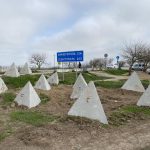
As one who spent two months in Russia on a pedal bike in 2000, I was considered poor because I did not have a car. So, even then things were looking better and my impression of Moscow was similar to yours. Nice to see your photos. They bring back good memories. It is clear that the lack of critical thinking in Canada and most of the west, especially the USA, has contributed to an entirely one-sided view of the Ukraine-Russia conflict. Most, no make that all, the people I have spoken to have no clue about what happened in the Ukraine in 2014.
Thank you very much for information and an explanation of how the facts were arrived at.
Too often, we are asked to take on faith the evaluation of sources.
Enjoying your post about your experience visiting Moscow.And the photos too.
I would like to know more about the underground pedestrian passages and the everyday life for the people. Are the passages pleasant? Are there farmers markets…where do people buy their groceries and how are the prices?What about bikes. Are there cycling paths, bike lanes and many parks?
I went to Moscow for 10 days sponsored by The Canadian Environment Network and CIDA It was an amazing experience, much like yours, to find so many aspects quite different than portrayed by Western press. We were to make contact with Russian ENGOs, which we did. Getting outside the metropolis a bit. To the person asking about markets. In Moscow there is a huge outdoor market, selling furs, selling carvings, gorgeous Russian crafts. Dried fruit, all the ‘nesting dolls, hand painted.
Thank you for your informative report.The architecture you display is truly magnificent. I was most impressed by the Moscow metro map. I imagine the metro could serve as air raid or nuclear shelters in case of a major war….a war that Canada seems to have been provoking, in concert with the US, since 2013 or before.
In my city, Edmonton, Alberta we have an LRT that is violence ridden and still largely being constructed above ground which will serve no civil defence purpose when completed.
Interesting to learn of Russia’s financial situation and its excellent Debt to GDP ratio, a metric used a lot by our current leaders to assuage, read bamboozle, our largely financially illiterate population.
The sanctions put on Russia seem to have backfired and caused us the greater financial pain.
Looking forward to your reports from Crimea and Novo Rossiya. Good luck.
Loved the article, the premise, and the goal of bringing more balance. I am attempting to do the same, as a kiwi Ukrainian who grew up in New Zealand.
I’d love to get in touch with you and talk about your experience, Dimitri—I’m leaving my email.
Thanks
ai
Did I understand correctly that there will be another article about Crimea? By the way, you inserted a very outdated metro map.
And in general, only about the transport system of Moscow, you can write a whole article 🙂 it has developed very much over the past 10 years.
Quite disappointing travel report… you commented on many things you could Google – is there litter in the streets, are the buildings well maintained, is their food on the supermarket shelves? The subway is big.
Where is the random discussion with people on the subway, in a bar, or at a library? Where is the opinion of an anonymous police officer? You basically just said, “Remember the Russian people are normal and that Moscow is a developed City”. Of course.
And you forgot to Google that Oil & Gas makes up 50% of the economy. Imagine if Russia invested in innovation and education as China has sone for the last 40 years….
Thank you Dimitri for adding some first hand balanced experience to the discussion of the Ukraine/Russia conflict! You are doing a great service in the interest of peace on your travels and giving us an opportunity to see Russia not as an enemy to be hated but as a nation of people similar to ourselves. Thank again for this work you are undertaking and I look forward to future reports from Russia and Ukraine. Many prayers for your safety and the success of your journey! Peace!
I spent nearly 3 weeks in Russia, not only in Moscow but in several smaller villages and in St. Petersburg. Central Moscow near Red Square is as attractive as any other tourist spot in a major city. The traffic on the suburbs of Moscow was congested, horrendous and polluting. A separate lane of traffic was reserved for “ important people” and neither busses or other citizens could use it. There was very little litter..along major thoroughfares at non-peakhours there were many workers sweeping and picking up..especially cigarette butts! Smoking was more prevalent than most European cities.
Ordinary people were friendly and helpful. There is a very rich musical and art culture which children are introduced to at a very young age.
Gorbachev was the former leader most despised by those I spoke with..they volunteered that with no prompting! Everyone I spoke with seemed to think things were better under Putin. They seemed to have no idea of the wealth of the oligarchs and were fed a pretty continuous line of propaganda about the West.
Alcoholism is rampant…and wifebeating seemed to accompany it as an accepted practice. Especially in smaller towns and villages people seemed to be living a hand to mouth existence.
So good to get your perspective Dimitri. We are bombarded with agenda-driven bombastic drivel. Not that Putin is innocent-his ambitions and power-hunger is abhorrent. But media being what it generally is-trust is at best fluid. Thank you.
Nice to get a balanced account from someone who hasn’t been in Russia before. I was there in 1986 and found it clean, safe, and pretty much like Canada minus the homeless and the litter on the streets, which is now much worse in Canada. It sounds like despite the turmoil of the Yeltsin decade when all the public property and industry was being sold off to Americans flying in with suitcases of freshly printed cash the economy has recovered well under Putin and the people have retained their habits of keeping the streets and metro spotless. I look forward to further reports from Crimea.
Thanks for this perspective. Yes, lets have more balance and less dogma.
Thank you ! Dimitri
For the not so common,common sense !
Dear Dimitri,
Many thanks for the important work you’re doing.
All best wishes,
Michael
To echo the voices above, you have succeeded in your objective, Dimitri.
It frustrates me that you feel a need to qualify your writing; to try to escape some impending criticism of lack of criticism. Since when are travelogues about bagging a place traveled? Yes, items of annoyance are useful notes, but a travelogue is about what was discovered.
I think you did a wonderful job, and I am jealous. I very much hope to visit both Moscow and St. Petersburg during my life. Russia has a long and extremely rich history in society, politics and all of the arts, especially literary and musical. In a recent article about the battle between Twitter and the publishing site Substack’s new competitor, the musical piece I chose to accompany it was Nikoali Rimsky-Korsakov’s extremely busy Flight of the Bumblebee. It did not take long to find a video recording by the Russian National Orchestra in the Grand Hall of the Moscow State Conservatory, which seemed fitting for the Russian composer. Needless to say, the skill on display, especially by the flutist, is extremely impressive.
Thank you for sharing your excellent story of your trip to Moscow, that sound so much like my Russian friend’s recounting of like in Moscow. Your photos are also similar to the ones she shared with me.
I see your work as a note in the “Waltz for Peace”, by Dr. Edward Lozansky
https://www.youtube.com/watch?v=AUX3IsY76Mo
Your trip there makes me think of JFK sending Robert Frost as an ambassador to Russia
Robert Frost and the Cuban missile crisis [Gerald Therrien RTF Lecture]
https://youtu.be/TGro8XMi1q4?t=139
Keep up the great work!
Dimitri:
Thank you for your efforts to promote peace & understanding by opening a dialogue in Russia. Only by being honest & sincere in international relations can we guarantee peace & prosperity in this world…
A sad thank you for being the only voice for peace coming from Canada.
The only Canadian political figure that has shown any historical understanding of the conflict and who is not driven by outside influence.
Please take care.
How long did it take to translate from RU MFA to English wanderlust? How much were you paid for your trip to Krim, Ukraine? And did MFA put you in coach or first class?
As I have stated publicly and repeatedly (including on this website), no one paid me any compensation for my trip to Crimea and I paid 100% of my travel expenses out of my own pocket. Do your homework before you level such accusations against the persons with whom you disagree.
As I have said publicly many times, no one compensated me for any part of my trip to Russia. I bore 100% of my travel expenses out of my own pocket. People like you who make such accusations without a shred of evidence are bad faith actors. You can’t win a debate based on the merits, so you resort to baseless smears. Shame on you.